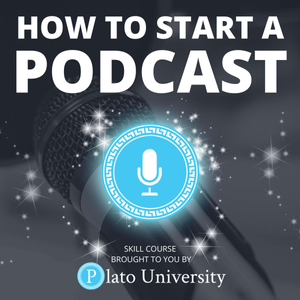
19. How To Express What Someone Doesn't Do in Korean (Verb Negation)
11/11/20 • 22 min
Welcome to the Essential Korean Podcast, where I help break down the nuances of the Korean language to help you become a more aware and confident speaker of Korean. Ready to elevate your Korean skills and join a vibrant community of learners? Join the EK Community at my.essentialkorean.com for engaging courses, comprehensive resources, exclusive content, and great conversations on diverse Korea-related topics with other members. Visit our membership page to choose a plan that gives you access to episode transcripts and an enhanced learning experience with weekly classes and study sessions alongside like-minded people. Let’s embark on this wonderful journey together!
-----
In this episode, you’ll learn how to negate verb forms in Korean, or in simpler terms, how to say what someone doesn’t do. By building on what we’ve already learned about expressing actions (e.g., "I eat" or "I cook"), we’ll now explore how to express statements like “I don’t eat” or “I don’t cook.”
🎯 What you’ll learn in this episode:
How to negate verb forms in Korean for more detailed and realistic conversations
How to answer questions about what actions you do or don’t do
A review of the verbs from previous episodes, plus 6 new, essential Korean verbs:
· 가요: to go
· 배워요: to learn
· 가르쳐요: to teach
· 읽어요: to read
· 만나요: to meet
· 좋아해요: to like
✨ Practice Makes Perfect!
We’ll practice these verbs in a variety of real-life situations. Don’t forget to repeat after Teacher Kay to improve your pronunciation and confidence. By the end of this episode, you’ll be amazed at how far you’ve come in your Korean journey!
💬 Which verb are you most excited to practice in sentences? Let us know in the comments!
Don't forget to repeat after Teacher Kay and hear yourself saying the sentences and understanding the conversations. You'll be surprised at how far you've come!
#LearnKorean #KoreanGrammar #NegationInKorean #EssentialKorean #SpeakKorean #KoreanVerbs #KoreanForBeginners #KoreanLessons #KoreanPractice #KoreanLanguage #DailyKorean #KoreanSpeakingSkills
- Home page: www.essentialkorean.com
- Community: my.essentialkorean.com
- https://www.instagram.com/essential.korean
Welcome to the Essential Korean Podcast, where I help break down the nuances of the Korean language to help you become a more aware and confident speaker of Korean. Ready to elevate your Korean skills and join a vibrant community of learners? Join the EK Community at my.essentialkorean.com for engaging courses, comprehensive resources, exclusive content, and great conversations on diverse Korea-related topics with other members. Visit our membership page to choose a plan that gives you access to episode transcripts and an enhanced learning experience with weekly classes and study sessions alongside like-minded people. Let’s embark on this wonderful journey together!
-----
In this episode, you’ll learn how to negate verb forms in Korean, or in simpler terms, how to say what someone doesn’t do. By building on what we’ve already learned about expressing actions (e.g., "I eat" or "I cook"), we’ll now explore how to express statements like “I don’t eat” or “I don’t cook.”
🎯 What you’ll learn in this episode:
How to negate verb forms in Korean for more detailed and realistic conversations
How to answer questions about what actions you do or don’t do
A review of the verbs from previous episodes, plus 6 new, essential Korean verbs:
· 가요: to go
· 배워요: to learn
· 가르쳐요: to teach
· 읽어요: to read
· 만나요: to meet
· 좋아해요: to like
✨ Practice Makes Perfect!
We’ll practice these verbs in a variety of real-life situations. Don’t forget to repeat after Teacher Kay to improve your pronunciation and confidence. By the end of this episode, you’ll be amazed at how far you’ve come in your Korean journey!
💬 Which verb are you most excited to practice in sentences? Let us know in the comments!
Don't forget to repeat after Teacher Kay and hear yourself saying the sentences and understanding the conversations. You'll be surprised at how far you've come!
#LearnKorean #KoreanGrammar #NegationInKorean #EssentialKorean #SpeakKorean #KoreanVerbs #KoreanForBeginners #KoreanLessons #KoreanPractice #KoreanLanguage #DailyKorean #KoreanSpeakingSkills
- Home page: www.essentialkorean.com
- Community: my.essentialkorean.com
- https://www.instagram.com/essential.korean
Previous Episode

18. How To Make Korean Sentences with Pronouns 'I,' 'we,' my,' and 'our' & 10 More Action Verbs
Welcome to the Essential Korean Podcast, where I help break down the nuances of the Korean language to help you become a more aware and confident speaker of Korean. Ready to elevate your Korean skills and join a vibrant community of learners? Join the EK Community at my.essentialkorean.com for engaging courses, comprehensive resources, exclusive content, and great conversations on diverse Korea-related topics with other members. Visit our membership page to choose a plan that gives you access to episode transcripts and an enhanced learning experience with weekly classes and study sessions alongside like-minded people. Let’s embark on this wonderful journey together!
-----
Welcome to Episode 18 of the Essential Korean Podcast! Continuing from the last episode, we’ll introduce 8 more Korean pronouns and teach you how to use them in sentences with 10 new action verbs commonly used in daily life. This time, the practice section centers around a fun "house tour"!
🎯 What you’ll learn in this episode:
1️⃣ 8 Korean Pronouns to expand your ability to talk about yourself and others
2️⃣ 10 Action Verbs in dictionary form:
- 보다: to watch or to see
- 일어나다: to get up
- 듣다: to listen or to hear
- 자다: to sleep
- 씻다: to wash
- 요리하다: to cook
- 밥 먹다: to have a meal
- 마시다: to drink
- 통화 중이다: to be in the middle of a call
- 이메일 쓰다: to write an email
Combined with the 13 verbs from the previous episode, you’ll now be able to express your entire daily routine in Korean—from waking up to writing emails!
🎵 Featured Song:
- Title: 하루일과 ("Those Days")
- Artist: 자이언티 (Zion T.)
https://www.youtube.com/watch?v=t27bFuEbvjw (music video)
👂 Don’t forget to repeat after Teacher Kay during the practice section and hear yourself confidently speaking Korean!
💬 Which new verb or pronoun are you most excited to use in a sentence? Let us know in the comments!
#LearnKorean #KoreanPronouns #KoreanDailyVerbs #EssentialKorean #SpeakKorean #KoreanLessons #KoreanPractice #DailyRoutineInKorean #KoreanForBeginners #LanguageLearning #ZionT #KoreanVocabulary #KoreanSongs
- Home page: www.essentialkorean.com
- Community: my.essentialkorean.com
- https://www.instagram.com/essential.korean
Next Episode

20. How To Use Korean Particle 은/는 as Topic & Contrastive Particle in Sentences (Yes, we're now learning Korean particles!)
Welcome to the Essential Korean Podcast, where I help break down the nuances of the Korean language to help you become a more aware and confident speaker of Korean. Ready to elevate your Korean skills and join a vibrant community of learners? Join the EK Community at my.essentialkorean.com for engaging courses, comprehensive resources, exclusive content, and great conversations on diverse Korea-related topics with other members. Visit our membership page to choose a plan that gives you access to episode transcripts and an enhanced learning experience with weekly classes and study sessions alongside like-minded people. Let’s embark on this wonderful journey together!
-----
Welcome to Episode 20 of the Essential Korean Podcast! In this milestone episode, we dive into the Korean particle system, an essential component of Korean grammar. Particles are the backbone of Korean sentences, and mastering them is key to understanding and communicating effectively in Korean.
🎯 What you’ll learn in this episode:
The two main types of Korean particles:
1️⃣ Function Markers: Particles like 이/가, 을/를, 은/는 that define the role of a word (subject, object, or topic) in a sentence.
2️⃣ Meaning Adders: Particles like 에, 에서, 부터, 까지 that convey meanings such as "in," "on," "at," "from," or "to."
A deep dive into 은/는 particles, with clear examples to help you understand how they function in sentences.
✨ Why this episode is a milestone:
Learning Korean particles is a significant step forward in your language-learning journey. By focusing on 은/는 in this episode, you’ll develop a strong foundation for mastering the rest of the particle system in the future.
🎵 Featured Song:
Title: 우리는 ("We")
Artist: 송창식 (Song Chang-sik)
Listen here! https://youtu.be/YzcLM1f3_qU
👂 Practice Makes Perfect!
Repeat after Teacher Kay as she walks you through sentences and examples. Hearing yourself use these particles will help reinforce your learning and build confidence.
💬 Share in the comments: What’s your biggest takeaway from this lesson on 은/는?
#LearnKorean #KoreanParticles #EssentialKorean #SpeakKorean #KoreanGrammar #은는Particles #KoreanLanguage #KoreanLessons #KoreanForBeginners #KoreanPractice #LanguageMilestone #KoreanLearningJourney
- Home page: www.essentialkorean.com
- Community: my.essentialkorean.com
- https://www.instagram.com/essential.korean
If you like this episode you’ll love
Episode Comments
Generate a badge
Get a badge for your website that links back to this episode
<a href="https://goodpods.com/podcasts/essential-korean-podcast-183486/19-how-to-express-what-someone-doesnt-do-in-korean-verb-negation-16440970"> <img src="https://storage.googleapis.com/goodpods-images-bucket/badges/generic-badge-1.svg" alt="listen to 19. how to express what someone doesn't do in korean (verb negation) on goodpods" style="width: 225px" /> </a>
Copy




